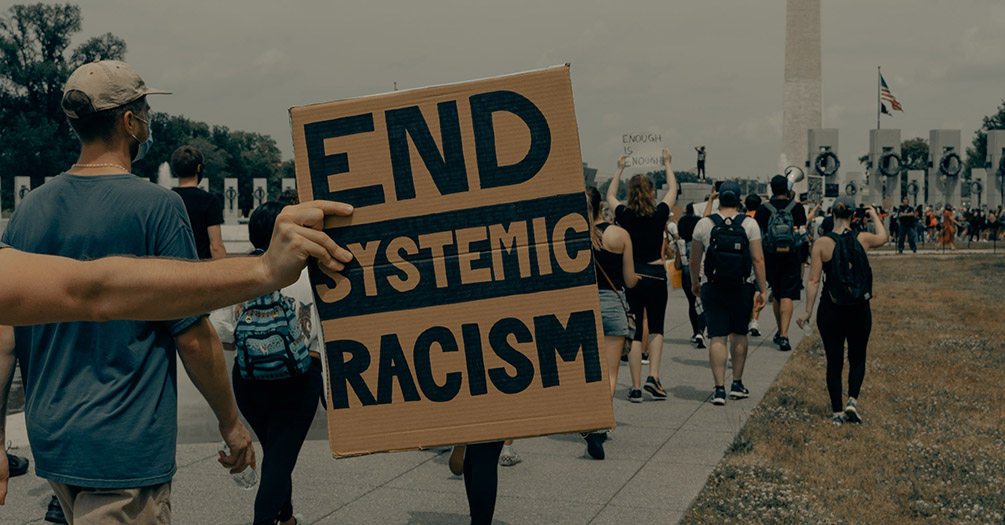In the vast tapestry of human experience, the intersection of medical ethics and systemic inequality reveals a complex, multifaceted dilemma known as medical racism. This term encapsulates the insidious, pervasive nature of racial bias within healthcare systems, where individuals from marginalized communities often find themselves ensnared in a web of mistreatment, misdiagnosis, and profound mental health ramifications. The Bahá’í teachings, with their emphasis on unity, justice, and the intrinsic worth of every human being, provide a salient lens through which we can examine and address these critical issues.
At the heart of the Bahá’í faith lies the belief in the oneness of humanity. This principle posits that all individuals, regardless of their racial or ethnic backgrounds, possess equal worth and dignity. In the context of medical racism, this foundational teaching starkly contrasts with the realities faced by individuals who endure a healthcare landscape riddled with prejudice. Often, the treatment they receive is tainted by stereotypes or systemic biases, leading to detrimental consequences.
One of the most troubling manifestations of medical racism is mistreatment. This occurs when individuals are not afforded the same level of care and attention as their counterparts. The metaphor of a garden can serve to illuminate this phenomenon—just as a gardener must tend to all plants with equal diligence to achieve a flourishing landscape, so too must healthcare providers recognize the inherent value of every patient. However, when biases distort perceptions, certain groups may be neglected, much like weeds overshadowing the delicate flowers. Such neglect can result in substandard treatment and worsened health outcomes.
Moreover, misdiagnosis becomes a recurrent theme within the realm of medical racism. The complexities of human physiology are often inadequately understood through the narrow lens of racial stereotypes. This lack of nuance can lead to erroneous conclusions about a patient’s health. Consider the metaphor of a shattered mirror—when individuals observe their reflections through a distorted lens, they may fail to see their true selves. Similarly, healthcare providers who rely on preconceived notions may overlook critical symptoms that deviate from their expectations, thus perpetuating cycles of misdiagnosis and inadequate care.
The implications of these injustices extend far beyond the immediate physical health of the individuals affected. Mental health repercussions are profound and, at times, insurmountable. The emotional toll of experiencing mistreatment and misdiagnosis can lead to chronic stress, anxiety, and depression. This is akin to a heavy fog settling over a landscape, obscuring both the beauty of the surroundings and the path forward. The mental anguish resultant from racial bias in healthcare often manifests as a pervasive feeling of distrust toward medical professionals, causing individuals to avoid seeking care even when necessary.
In addressing these issues, the teachings of the Bahá’í faith advocate for proactive engagement and systemic change. The concept of collective action resonates deeply within this framework. Communities, as interconnected networks, must advocate for justice and equality within healthcare settings. Through education and dialogue, individuals can dismantle the prejudices that pervade medical practice. Empowerment becomes a catalyst for transformation, enabling marginalized voices to be heard, thereby illuminating the hidden injustices that mar the healthcare experience. This embodies the Bahá’í commitment to fostering a just society, devoid of disparities etched by race.
Furthermore, the call to action is accompanied by the imperative to develop culturally competent healthcare practices. This involves not merely recognizing but embracing the unique narratives of diverse populations. The metaphor of a symphony resonates here; just as a harmonious arrangement of varied instruments creates a transcendent musical experience, so too can an inclusive approach to healthcare enrich the treatment landscape. Training healthcare providers to understand and appreciate cultural differences will enhance diagnostic accuracy and foster a more empathetic clinician-patient relationship.
Healing, then, becomes a collective endeavor. The Bahá’í teachings illustrate that true wellness encompasses not just the absence of physical ailments but also emotional and spiritual well-being. As members of society strive to eradicate the vestiges of medical racism, it is essential to cultivate environments that nurture whole-person health. In this light, the role of policymakers and community leaders is paramount. By implementing frameworks that emphasize equitable access to resources, they can help dismantle the systemic barriers contributing to medical racism.
Additionally, the integration of mental health services within primary care settings presents another avenue to mitigate the impacts of medical racism. By fostering a holistic understanding of health—one that combines physical, mental, and social well-being—healthcare systems can offer more comprehensive support to those affected by racial injustices. The metaphor of a tapestry again illustrates this concept: just as various threads come together to create a cohesive whole, so too must different health services intertwine to provide a seamless patient experience.
In conclusion, the battle against medical racism is both intricate and urgent. The Bahá’í teachings provide invaluable insights into the fundamental principles of equality, justice, and the imperative for community-driven action. By engaging in dialogue, advocating for systemic reform, and fostering inclusive practices, society can dismantle the structures that perpetuate medical racism. Every individual possesses an inherent right to equitable healthcare, a truth that shines brightly in the teachings of the Bahá’í faith, urging humanity toward a future where healing transcends racial boundaries, fostering a truly united world.
